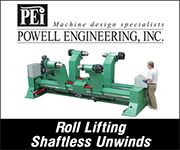VC-Backed Maxterial's H-Max Outperforms Hard Chrome
- Published: December 03, 2024
New coating surpasses traditional plating in 27-point comparison, boosting durability while reducing carbon footprint
Maxterial Inc.. an award-winning, VC-backed advanced chemical and coating technology company, announced today that its H-MaxTM product line has effectively surpassed hard hexavalent chrome with a product that is superior in performance, safety, and environmental impact. Backed by heavy-weight investors like Peter Thiel's Breakout Labs and the CVC arms of forward-thinking multinationals such as Saint-Gobain, Anglo American, and Ciech, Maxterial has a full range of products under its MaxShieldTM platform.
The promise of a hexavalent chrome replacement has dogged the steel industry and many others for years. The century-old product has long been known as a carcinogen and heavily regulated while serving as the standard for high-wear manufacturing parts. Yet virtually every previous replacement had to sacrifice performance, scalability, or cost. H-Max breaks that cycle, delivering superior performance across all major specifications at a reasonable total cost of ownership for OEMs.
"Previous technologies typically offered either low adhesion between coating and surface of the part, low wear characteristics, or both," Haghdoost explained.
"We decided to challenge ourselves with an extreme case where both adhesion and wear factors played a major role, knowing that delivering under these conditions would show Maxterial can succeed where so many others have failed," Kargar added.
In papers delivered at AISTech 2024, IVT EXPO 2024, and ASETSDefense 2024, Maxterial CTO Haghdoost and CEO Kargar presented results from 27 different tests, including results that showed the company had successfully coated cold rolling work rolls and sent them to the R&D facility of an unnamed global steel production company. The steel company then subjected the coated roles to a series of extreme wear "torture tests," under high pressure, noting that H-Max succeeded where chromium and previous chrome replacements had failed.
Initial data collected by this global steel producer indicates H-Max may offer a meaningful increase in lifetime, resulting in less downtime for the cold rolling process. Initial test data validates Maxterial's own lab data conducted over nearly ten years, demonstrating that H-Max can outperform the wear and adhesion characteristics of hard chrome and its alternative. In some cases, H-Max delivered wear performance that was more than 10 times more effective than hard hexavalent chrome.
According to recent studies by Argonne National Laboratory, approximately 23% of the world's total energy consumption stems from tribological contacts, with 3% specifically devoted to remanufacturing worn parts and equipment replacement. The implementation of advanced tribological solutions like H-Max could contribute to saving up to 3,140 Mt of CO2 per year while simultaneously eliminating dangerous chemicals from industrial processes.
"We're not just replacing hexavalent chrome—we're addressing a significant contributor to global carbon emissions," said Dr. Mehdi Kargar, CEO of Maxterial. "With wear accounting for such a substantial portion of industrial carbon footprint, H-Max represents a dual opportunity: superior performance and meaningful carbon reduction."
While the next step for the technology is more comprehensive testing in an actual steel mill and large production lines, H-Max has already been adopted for applications including hydraulic parts, leveling rolls, and casting molds where less wear resistance is needed.
"Our technical team, led by Dr. Haghdoost, closely collaborated with customer business units to enable a scalable technology. Maxterial's ability to couple breakthrough technologies with unique, proprietary on-site replacement system makes H-Max a truly disruptive innovation," noted Kargar. "We know many industry sectors have been searching for a replacement technology that offers superior performance and environmental parameters with a reasonable total cost of ownership. After several large-scale trials, we expect migration to this new technology to happen quickly."
The company is actively seeking opportunities to collaborate on joint trials across additional applications. "Our research and development process and trials are highly collaborative," notes Dr. Haghdoost. "We work side-by-side with implementation partners, R&D, and site manufacturing teams to ensure all parameters and processes are adapted to customers' unique needs."
For more information, visit www.maxterial.com.












